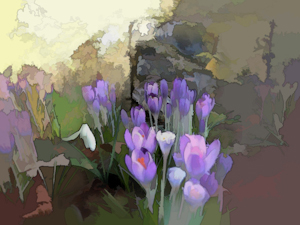Q: I take no great pleasure in what the Buddhists call samsaric existence, and, over a long number of years, by intellectual hard work, have extricated myself from sectarian Christianity. However, I have come to realise that my progress has been not so much spiritual as intellectual. In practice, I find that I seem to be incapable of devotion, or any emotional attitude to any avatar or guru. For me, Bhakti seems to be impossible even though I really try to avoid obvious “sins”, and try to be altruistic in my outlook. It seems as if I am damned to be merely a seeking, learning intellect, with very little emotion in what I do, except in times of crisis. For instance, in desperation at what I see as my condition, I have prayed to Ramana Maharshi, asking him to open my heart, and to allow me to feel more emotion/devotion than I do. Sometimes, on such occasions I have shed tears, but they pass, and soon, I am back to my usual practical self, doing the usual, practical things, and taking an “intelligent interest” in things.
Years ago, I used to attend a Buddhist meditation group under a very able teacher who, it was obvious, had seen through the ego and was beyond it. (It would be too complex a matter, and would take too long, to tell you how I knew this, but know it I did. He was a very powerful being, and his aura could be felt even after leaving him.) After a number of years’ attendance, this teacher made it clear to me (I must say, very skilfully, by implication and not directly) that I was not a suitable attendee. This was even though there had been many of what I would call transcendental experiences, and insights (all, I think, thanks to the darshan of this teacher) that have now been lost. For many years, since leaving the group, I have been a loner, living a very quiet and studious life, mainly. I try to do all the good for others that I can, by being helpful to others, and as generous as I can afford to be (I think) with money. Yet, I feel as if I am damned, having lost my chance to practice with a realised teacher. And all because (it seems) I was not able to forswear sex within marriage at that time of life. Even now, in old age, when such an obstacle cannot exist, there is still the problem of a lack of a capacity for devotion — only a capacity for intellectual understanding.
What can be done? I am afraid of being re-born in unpropitious states because of my condition. Continue reading →

